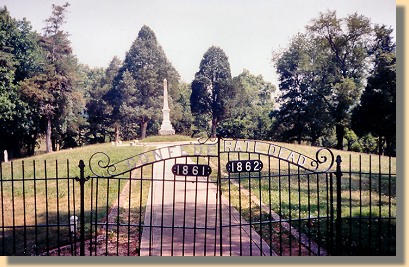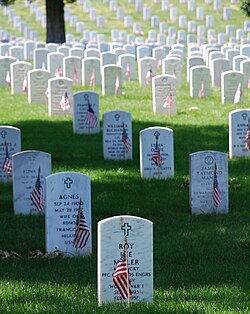Its all rhetoric and political swashbuckling until real world problems become your own.
Today’s Washington Post has an excellent opinion piece written by Dana Millbank entitled, Through Oil-fouled Water, Big Government Looks Better and Better. The entire article has been posted below because every word needs to be taken to heart and read carefully. There was simply no part that could be considered for truncating purposes.
Through Oil-fouled Water, Big Government Looks Better and Better
Dana Millbank, Washington Post
There is something exquisite about the moment when a conservative decides he needs more government in his life.
About 10:30 Monday morning, Sen. David Vitter (R-La.), an ardent foe of big government, posted a blog item on his campaign Web site about the huge oil spill in the Gulf of Mexico. “I strongly believe BP is spread too thin,” he wrote.
The poor dears. He thinks it would be a better arrangement if “federal and state officials” would do the dirty work of “protecting and cleaning up the coast” instead of BP.
About an hour later came word from the Pentagon that Alabama, Florida and Mississippi — all three governed by men who once considered themselves limited-government conservatives — want the federal government to mobilize (at taxpayer expense, of course) more National Guard troops to aid in the cleanup.
That followed an earlier request by the small-government governor of Louisiana, Bobby Jindal (R), who issued a statement saying he had called the Obama administration “to outline the state’s needs” and to ask “for additional resources.” Said Jindal: “These resources are critical.”
About the time that Alabama, Florida and Mississippi were asking for more federal help, three small-government Republican senators, Richard Shelby and Jeff Sessions of Alabama and George LeMieux of Florida, were flying over the gulf on a U.S. government aircraft with small-government Republican Rep. Jeff Miller (Fla.).
“We’re here to send the message that we’re going to do everything we can from a federal level to mitigate this,” Sessions said after the flight, “to protect the people and make sure when people are damaged that they’re made whole.”
Sessions, probably the Senate’s most ardent supporter of tort reform, found himself extolling the virtues of litigation — against BP. “They’re not limited in liability on damage, so if you’ve suffered a damage, they are the responsible party,” said Sessions, sounding very much like the trial lawyers he usually maligns.
All these limited-government guys expressed their belief that the British oil company would ultimately cover all the costs of the cleanup. “They’re not too big to fail,” Sessions said. “If they can’t pay and they’ve given it everything they’ve got, then they should cease to exist.” But if you believe that the federal government won’t be on the hook for a major part of the costs, perhaps you’d like to buy a leaky oil well in the Gulf of Mexico.
It may have taken an ecological disaster, but the gulf-state conservatives’ newfound respect for the powers and purse of the federal government is a timely reminder for them. As conservatives in Washington complain about excessive federal spending, the ones who would suffer the most from spending cuts are their own constituents.
An analysis of data from the nonpartisan Tax Foundation by Washington Post database specialist Dan Keating found that people in states that voted Republican were by far the biggest beneficiaries of federal spending. In states that voted strongly Republican, people received an average of $1.50 back from the federal government for every dollar they paid in federal taxes. In moderately Republican states, the amount was $1.19. In moderately Democratic states, people received on average of 99 cents in federal funds for each dollar they paid in taxes. In strongly Democratic states, people got back just 86 cents on the tax dollar.
If Sessions and Shelby succeed in shrinking government, their constituents in Alabama will be some of the biggest losers: They get $1.66 in federal benefits for every $1 they pay in taxes. If Louisiana’s Vitter succeeds in shrinking government, his constituents will lose some of the $1.78 in federal benefits they receive for every dollar in taxes they pay. In Mississippi, it’s $2.02.
That may explain why, as the oil slick hits the Gulf Coast, lawmakers from the region are willing to swallow their limited-government principles as they dangle federal aid before their constituents. Sen. Roger Wicker (R-Miss.) said he would “make sure the federal government is poised to assist in every way necessary.” His colleague Thad Cochran (R-Miss.) said he is making sure “the federal government is doing all it can” — even as he added his hope that “industry” would pay.
President Obama tried to remind the government-is-the-enemy crowd of this situation in a speech on Saturday. “Government is the police officers who are protecting our communities, and the servicemen and -women who are defending us abroad,” he said. “Government is the roads you drove in on and the speed limits that kept you safe. Government is what ensures that mines adhere to safety standards and that oil spills are cleaned up by the companies that caused them.”
For the moment, some of the conservatives have new appreciation for governmental powers. “We’re going to have the oil industry folks, the BP folks, in front of us on the Commerce Committee,” Florida’s LeMieux vowed in the news conference Monday. “We’re going to talk about these drilling issues.”
But not before the taxpayer sends some more big-government money down to the small-government politicians of the gulf.
At what point do we stop thinking that the other person’s needs are frivolous and our own important? Are the politicians in the gulf states who are banging the drum about smaller government opportunists? Hypocrites? Or could it be that all those elected officials just needed a reality check about what we do when disaster hits us?




 Who would ever think that those beautiful Japanese cherry trees would be the source of so much contention? Japanese Mayor Yukio Ozaki of Tokyo gave 3,000 cherry trees to the city of Washington, D. C. in 1912 , honoring the lasting friendship between the United States and Japan. Apparently that friendship was to be sorely tested shortly after Pearl Harbor when the military had to guard the trees. Americans were so angry over the bombing of Pearl Harbor that they attempted to hack them down and to set them afire.
Who would ever think that those beautiful Japanese cherry trees would be the source of so much contention? Japanese Mayor Yukio Ozaki of Tokyo gave 3,000 cherry trees to the city of Washington, D. C. in 1912 , honoring the lasting friendship between the United States and Japan. Apparently that friendship was to be sorely tested shortly after Pearl Harbor when the military had to guard the trees. Americans were so angry over the bombing of Pearl Harbor that they attempted to hack them down and to set them afire.

